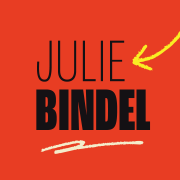Podcast
Feminism v. Gender Ideology: An Interview with Julie Bindel
During a visit to the county she calls ‘Tranada,’ the veteran activist and author tells Quillette that ‘intersectional’ feminism often resembles a rainbow-branded offshoot of the men’s-rights movement.
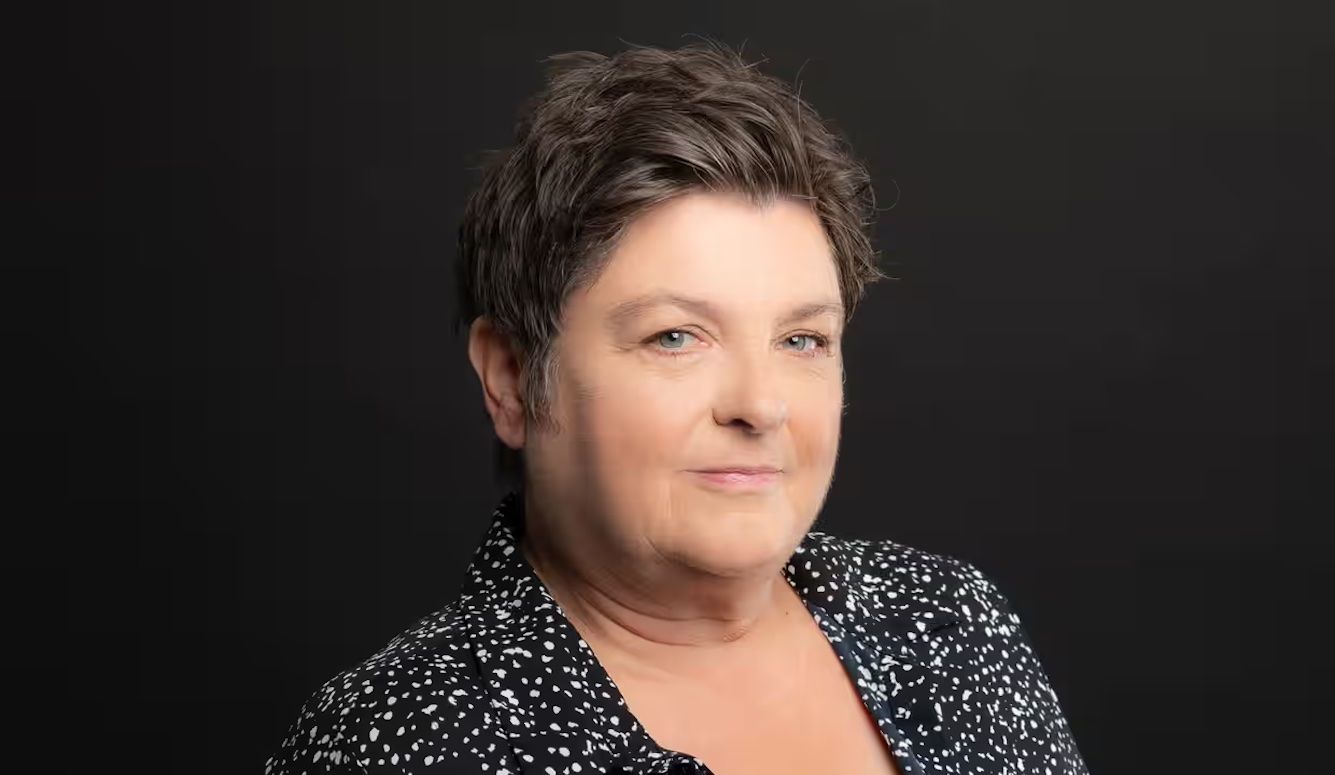
The text that follows is adapted from a December 4th, 2023 Quillette podcast hosted by Jonathan Kay.
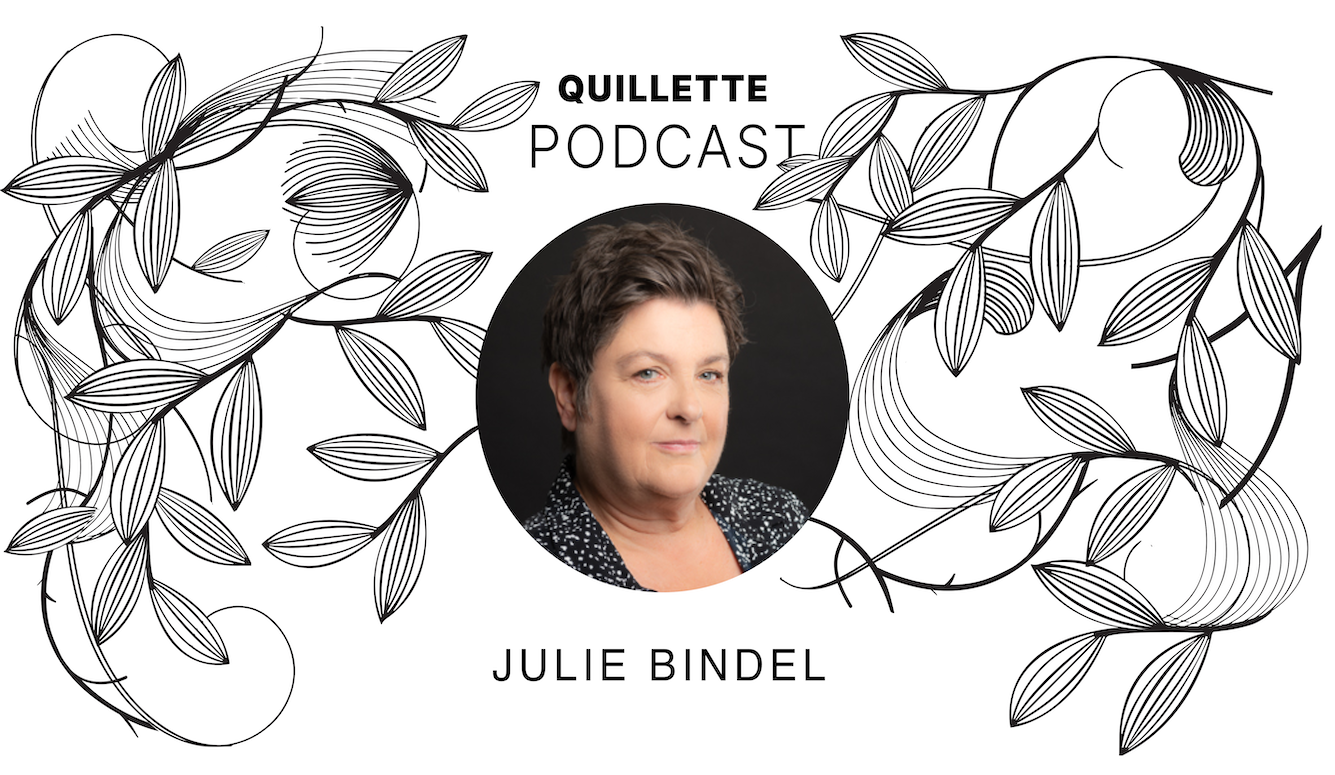
Jonathan Kay: Welcome to the Quillette podcast. On this week’s menu, we have an especially spicy entrée to serve you: veteran feminist activist, author, and pundit, Julie Bindel.
As you'll hear, Julie and I very much see eye to eye on a lot of issues; such as the reality of the biological differences that separate men from women—differences that don’t vanish when a person adopts new pronouns.
But, as recently as a few years ago, I really wouldn’t have imagined Julie and I being ideological allies. As you’ll hear on the show, I began my journalistic career at a conservative media outlet, Canada’s National Post newspaper, where my colleagues and I often took a skeptical view toward feminists of the Bindel-ian persuasion.
In recent years, however, the progressive campaign to pretend away the reality of biological sex has become so extreme that it has united in opposition a lot of different, formerly squabbling political factions, including conservatives, traditional feminists such as Julie, and people like me, who are pretty much just boring centrist liberals who don’t like to see the science of human biology misrepresented in the public sphere so that trans-identified men can have access to women’s sports, private spaces, and lesbian dating apps.
This is a war that Julie has been fighting for two decades—since at least 2004, when she wrote a widely read column titled Gender benders, beware in The Guardian—marking her as years ahead of her time in warning the world about this phenomenon. Last month, she and I had breakfast here in Toronto while she was visiting from England. I enjoyed the conversation so much that I invited her to come to our studios so we could continue the discussion for the benefit of Quillette podcast listeners.

J.K.: Julie, you’re here in Toronto to do research for a book. Is that right?
J.B.: That’s right. It’s a book on lesbians, and its working title is…Lesbians. So if anyone can think about a great subtitle for me, I’m listening.
The only book titles that include the term “lesbian” these days seem to be about anything but—or they’re some kind of derivative of lesbian porn, so mine might be quite refreshing.
My last book, Feminism for Women, which came out a couple of years ago, focused on how the term “feminist” has been bastardized and its meaning rendered just completely, ridiculously Orwellian—because intersectionality has been misappropriated.
An “inclusive” feminism has now come to mean a feminism that includes men. And “inclusive lesbianism” means a lesbianism that includes women with penises, which of course don’t exist.
But any publisher that buys my book—they’re going to be knowing what they’re getting, and they know that I’m not going to be floundering around trying to appease people who’ve got absolutely no clue what lesbian liberation or lesbian politics is.
I’ve had enough experience with publishers shaking my hand on a deal before then being bullied out of the deal by young blue-fringed intersectionals in their office. So I understand that if somebody’s interested in buying my book, they [should] know exactly what they’ve got to put up with when they then go into meetings with those young progressive [co-workers] who think they own the world.
J.K.: We had a version of that here in Canada a couple of years ago, which was by turns unsettling and extremely hilarious, involving Jordan Peterson’s book publisher here in Toronto, Penguin Random House. At the time, Peterson had already made the publisher something like $30-million, and they were now publishing his sequel. Everybody in the corner offices was quite thrilled because they run a business. And then, as I learned from an insider, younger, more militantly progressive cadres in junior positions went into maudlin hysterics at a kind of town hall meeting.
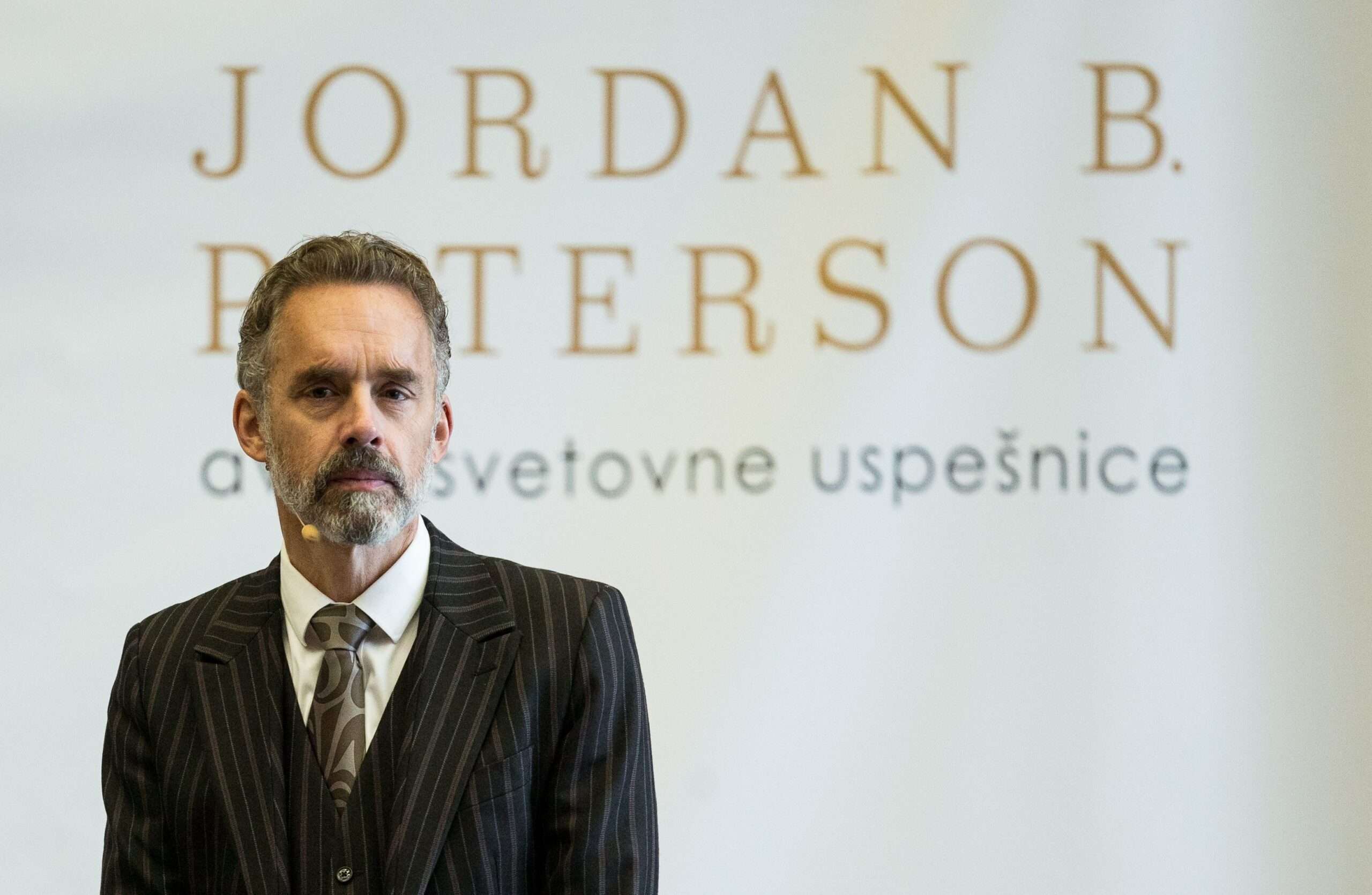
J.B.: That won’t happen with my publisher. It’s Swift Press, which has published a number of books that had been rejected from other publishing houses, despite the fact that the author [in question] was well-known, and had done well with previous book sales.
What happened with my Feminism for Women book was that about two or three women [book publishers] were really keen to buy it, and took me and my agent out, and we shook hands on it. They said they were excited about the book, but then turned out to be very easily bullied out of that. And at the same time, they were signing writers who were trans[gender] who would sell about 600 copies, as it turned out, because [those writers] couldn’t really write, with the exception of maybe one or two.
It was amazing to me, because it actually took a man—someone who worked at Little Brown, who asked my agent if he could read my proposal. He bought the book. And then he was told by one of the young people in the office that she would be requiring time off for trauma. She said she couldn’t bear working if her employer was going to be handling my book. And he said to her, well, what I would suggest is that you get yourself some counselling and then get over it.
It’s quite telling that it took a man to do that. And I think that’s because, with one or two exceptions, men are usually left alone in the gender war, in the massive misogynistic tidal wave of identity politics that sees women like me attacked for our work and our [identity]. Men tend to get away with way more. They’re coming after the women because [gender ideology] is effectively a men’s-rights movement…
J.K.: ... [Sarcastically] Or, could it just be that men are more decisive, and that we master our strong emotions?
J.B.: [Laughter] No, I think that they [just] get bullied less. And [ironically], many women are instigating this witch hunt against older feminists, older lesbians.
It’s because they don’t know history anymore, they don’t understand feminist history, and they’re now taught gender studies. So they worship at the altar of Judith Butler and they go through life having learned nothing whatsoever about the rights that they are now very happy to give away.
[Before coming to this fight] I had been a feminist for a long time. By 2004, when I first wrote about the trans issue and got into trouble, I’d already been a feminist for [decades]—since the end of the 1970s, when I was 17 years old. I met women who were uncompromising, working to end male violence, and who spoke extremely plainly, and were very tough and firm—and I learned from them.
And by the time it got to 2004, nothing surprised me in terms of the way that misogyny presents itself. What actually did surprise me, however, when they came after me 20 years ago, was that the liberals went along with them. That was deeply disappointing. They seemed to buy the lie that this was just like the lesbian and gay liberation movements, that trans rights were akin to that; and that these [supposedly] awful women, myself included, were [the equivalent of] right-wing Nazis. We were like Hitler.
By the way, you’ll notice there’s never ever a mid-range dictator that’s brought in at this stage. It’s always Hitler…
J.K.: …Yeah, I have a problem with that because sometimes I think, well, could we please just plea bargain this woman down to, like, Mussolini or something…?
J.B. Nope. Straight to Hitler. And nobody stopped to ask, well, if Bindel and Janice Raymond, who wrote the very first feminist treatise on transsexual ideology, as it was known then, why, when these women have campaigned to end [sex] trafficking and the medical abuse of women and girls, why all of a sudden have they been turned into [supposed] bigots? These women [Raymond and I] are left-wing lesbians.
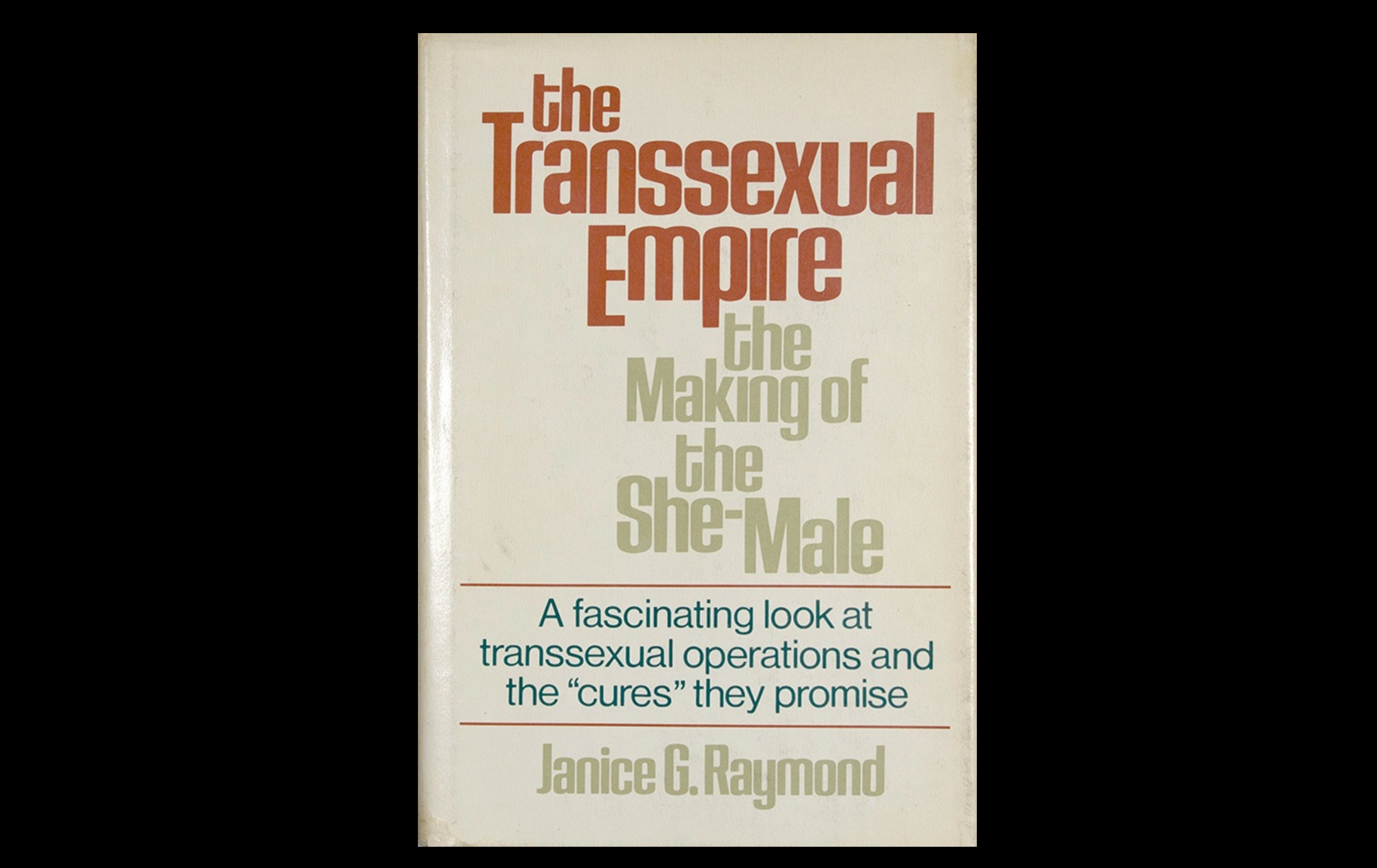
[These claims] were just [lapped up] by liberals. And of course, once that happened, once the liberals decided to denounce the likes of me, we were pretty much done for.
J.K.: …Until now, perhaps: I get the sense that the tide [in the battle over gender ideology] has been turning over the last year or two…which is kind of a problem for me, because I’m sort of a natural contrarian, so I may have to, uh, switch sides.
Anyway, I think class plays a role in this. As I mentioned in the introduction, you and I had an informal breakfast a few days ago, and I learned a bit about your background. I mean, it’s probably something your regular readers know about, but you didn’t exactly grow up with a silver spoon in your mouth.
And I know that maybe British listeners can tell a lot [about social class] by what kind of accent someone has. But, speaking as a North American, whenever I hear a British accent, I assume the person grew up in Downton Abbey.
But I’m curious if [how you grew up] contributes to your instinct to call bullshit on ideological developments in your field of activism that you recognize as nonsense. For [privileged] people who grew up in a kind of country-club atmosphere, the rule is, well, you don’t say anything that other people in the country club are going to find impolite, and so they can become a little bit more orthodox and slavish in the way they follow ideological trends.
J.B.: There’s lots to say about class, and you’re absolutely right to raise it, because this is an upper-class, highly privileged Ivy League-type debate. I mentioned Judith Butler earlier. She really exemplifies all that is wrong [with this field]. She says that gender is a performance. Okay…well, tell that to the girls in menstrual huts in Nepal.

Also, if I’d grown up in Downton Abbey, I’d have been one of the servants. I mean, we had no money. We lived in social housing, [to which] we’d been moved from a house without an indoor lavatory. My dad was a union representative. He worked in a factory. My mum worked in a store. None of the people where I grew up could give a damn about “gender identity.” They want to feed their kids. They’re happy if their kids come out as lesbian or gay. The white families are happy to see racial integration, and many have mixed-race relatives and grandkids. They’re not bigots.
But, you know, the thing about about material reality is that it matters if you’re poor. It matters if you’re a woman who’s been raped, and it matters if you’re black and you’ve been kicked out of your house or your job because of direct racial discrimination. And that’s when it hits you in the face.
Starting out as a shy scullery maid, Daisy's innocent nature defines her at the beginning of #DowntonAbbey. However, she progresses over time to develop a strong relationship with Mrs. Patmore and is promoted to assistant cook, and later marries Andy to become Daisy Parker. pic.twitter.com/KAWU5d4ZTu
— Downton Abbey (@DowntonAbbey) May 19, 2023
But then, having said that, you’ve got many women who’ve bought into [gender] ideology. And you can [advance your status within the movement] by buying into a set of ideologies—which gives you a nice tick beside your name. If you say “trans women are women,” you’re also going to say “sex work is work.” Because [upper class women are] never going to be in a brothel. Their daughters are never going to be in a brothel. You’re also saying, “from the river to the sea,” because you think Hamas uniforms are sexy. Tick box, tick box, tick box, all the way through.
JK.: But it always helps to give the other side its due—including when it comes to intersectionality. And when it comes to intersectionality, I think it’s important to concede that if you’re a woman, you face challenges associated with being a woman. If you’re black, you face challenges associated with being black. It’s hardly crazy to think these things. In fact, it’s kind of common sense to say that a person who’s a black woman faces both of those challenges. To me, that’s the common-sense version of intersectionality.
J.B.: When Kimberlé Crenshaw termed the phrase intersectionality, she used the example—she’s a legal scholar—of a black woman in a law firm. And it made sense then, and it makes sense now.
J.K.: Well, the other thing that’s happened—and I’m wondering if there’ll be a chapter in your book about this—is the metastasizing of LGBT identities to this more nebulous thing called being “queer.” I’ve had some LGBT guests on this podcast who’ve rolled their eyes to the back of their sockets when people talk about “the queer community.”
J.B.: If somebody wants to call themselves “queer,” it’s up to them, nothing to do with me. But don’t ever call me queer. And I’ll tell you how the term’s changed. It was a term of abuse, I think it’s still a term of abuse. And I was called queer when I was at school and I was accused of being, as they charmingly put it, a “kiddie fiddler” because we were all tarred with that brush.
I wasn’t allowed to babysit other people’s kids. And I was 15 years old and it felt hellish to be seen in that way. “Queer” was a word that came up again and again. Then “queer” changed in the early 1990s, after many gay men became politicized through the AIDS crisis, responding to the horrendous anti-gay prejudice and treatment they received.
Some of those men adopted the word “queer” as a term of…well, they reclaimed it. And they said, “We won’t ever let them use this against us again.” Now, that’s their business, their choice. But then another change came, which is the ever-expanding alphabet soup, the unbreakable Wifi code of LGBTQQIA-Two-Spirit-Plus.

“Queer” started to include straight men, for example, who are fetishists. Polyamory—that apparently makes you queer, too, if you’re a man who is simultaneously shagging four women, or just have an interesting haircut. So we’re now being forced into a “queer” group that many of us refuse to join—which includes straight women who once kissed a girl and who now live in a heterosexual marriage with kids.
J.K.: Conservatives are cynical about this kind of self-identification, and they’ll say, “Oh, these people just want to check intersectional boxes.” Here in Canada, there’s certainly currency to that, because in the arts community, if you want to get a grant or a CBC show, well, it’s very hard to fake being black; it’s hard to fake being Indigenous, even if many have tried it; but once you get into that alphabet-soup stuff, no one’s asking questions.
J.B.: Well, you don’t have to even “fake” being queer, because the word queer is now meaningless. The other Q in that long acronym is “questioning.” So all you have to do is wake up one day and think, “I wonder what it would be like to snog a girl?”
J.K.: [Wistfully] I mean, who among us has not been “questioning” at one point?…
J.B.: I would hope no one. But the point is, the word’s been rendered meaningless. I remember one young male social-justice warrior who writes for a liberal newspaper in the UK and who now just shrills for trans rights. First time I met him, he said to me, “Oh really pleased to meet you. I don’t know why we’re debating each other on this program because we’re both on the left”—which was true—but then he added, “…and we’re both LGBTQ.” And I said, “I’m not all of those things. I’ve got no time to be all of those things.” So now we’re actually being labelled as “LGBTQ” as an individual.
J.K: We’ve had one or two trans guests on this show—people who have gender dysphoria, but they call themselves “transsexual.” It’s a label that some trans people use to indicate that they don’t believe the anti-scientific idea that, say, trans women are actually [the same as biological] women. Have you built bridges with those heterodox members of the trans community?
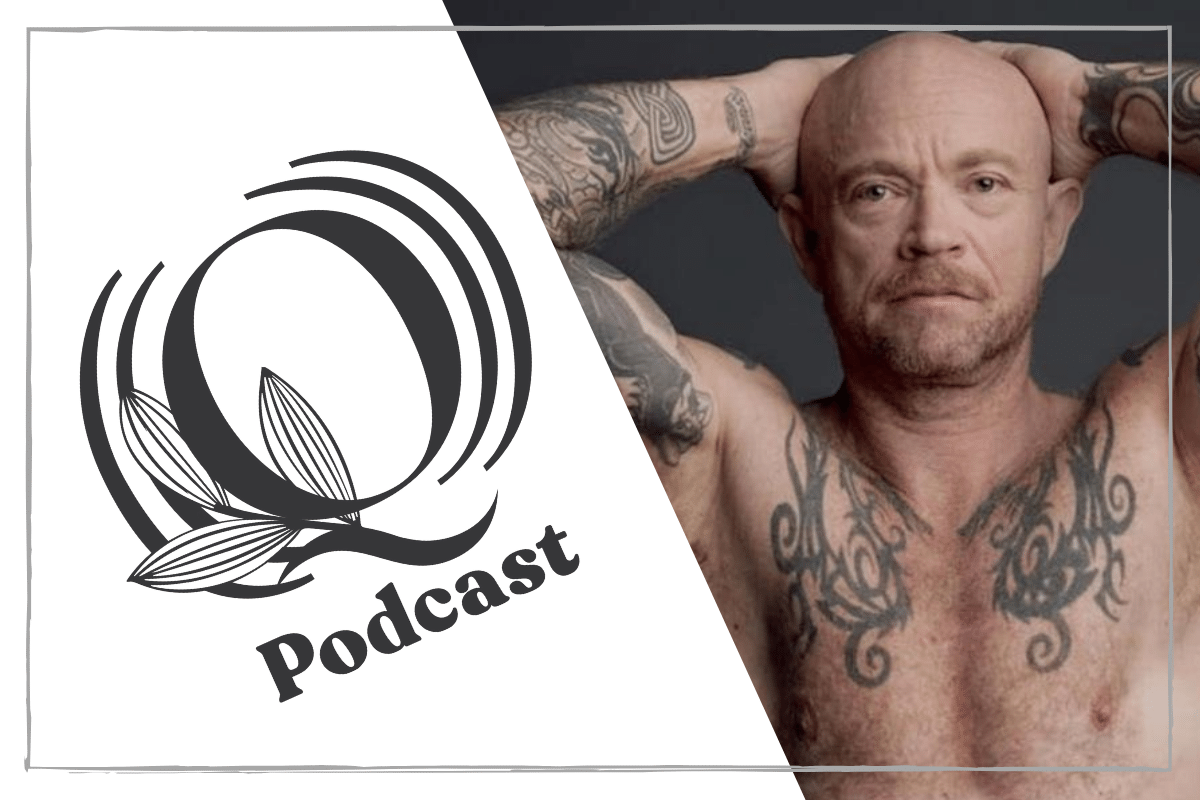
Because one thing I like to emphasize is that gender dysphoria is a real phenomenon. I know people with gender dysphoria, who’ve told me bluntly that they have [this condition]. They might say that they know they’re biologically male, but that it makes them feel better to present as a woman, and they ask me to use female identifiers for them. And, ironically, when they ask me like that, I’m much more inclined to do it.
J.B.: Yes. Many times, until a no-debate rule was imposed by the new wave of cool kids in the trans movement. A few months before I wrote that Gender benders, beware piece in the Guardian, I published another piece in the Sunday Telegraph magazine, which hinged on an interview I did with Claudia, an old-style transsexual, who…and I will use preferred pronouns for Claudia, and I’ll tell you why.
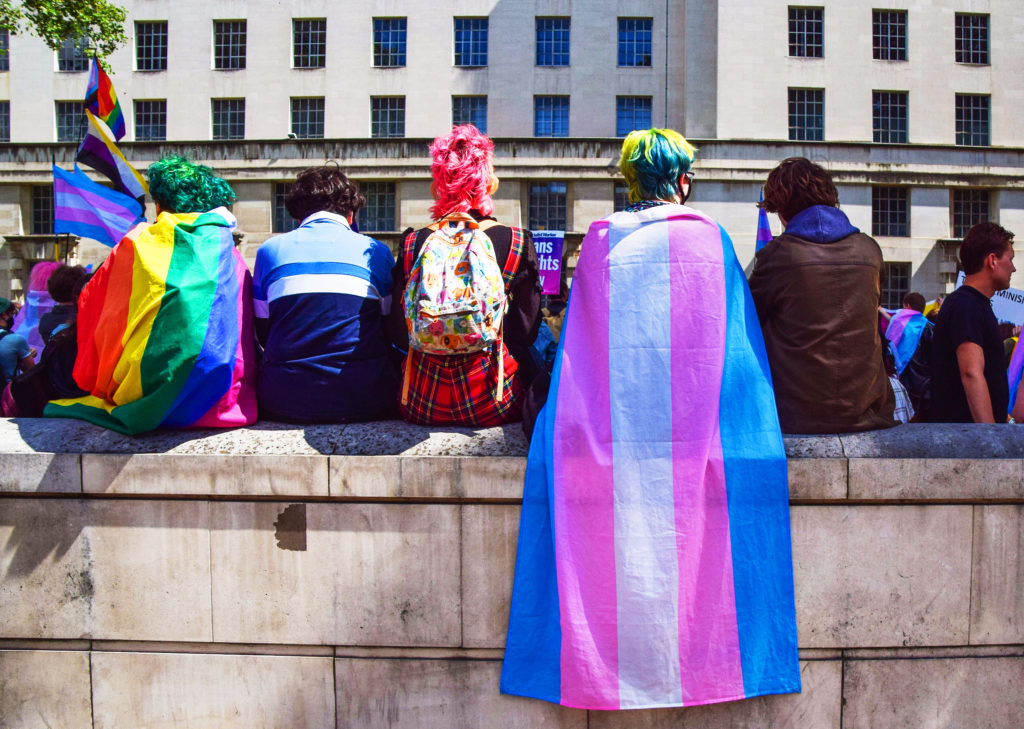
I’m a friend of Claudia’s, and when I go round to visit her, she presents entirely as the opposite sex. I know she’s a man. She knows she’s a man. She is respectful of women. She calls herself a transsexual, not a woman. She doesn’t go with any of this pretense. And she gave me an interview about how she’d always regretted having a sex change.
And she did this in the 1980s when she was a young gay man, because her then -partner hated being gay and put her under pressure—well, put him under pressure—to go through a sex change. It took 20 minutes in the psychiatrist’s office before she was signed off for full hormones and surgery.
J.K.: …So the internalized homophobia of this person’s partner led to what was essentially full-on medical conversion therapy?
J.B.: That’s exactly right. Now, when I met Claudia in 2003, it was because I knew through a lawyer that had represented her that Claudia had been sexually assaulted seriously while waiting for a train, in a public space, and reported it to the police.
And as soon as the police discovered that Claudia was transsexual—because they had to have a medical doctor involved—police officers would come in, look at her, laugh, and walk out. I mean, it really distressed me hearing about this. It’s hideous…
J.K.: …We can use the term “transphobia” to talk about that…
J.B.: Yes, totally transphobic. But what happened is that when Claudia spoke out—in my article, and then when she came with me to events where I was trying to build bridges with old-school transsexuals, she was thrown out of her own community. They hated her for washing dirty laundry in public. I have immense respect for Claudia. She’s a game-changer, and it cost her dearly. And I have tried to talk to many [trans] people who were then bullied out of speaking with me. I got a few debates in, respectful discussions with some trans people before the clampdown came from the new brigade.
J.K.: Let’s talk a little bit about how things have changed, because I think that just two or three years ago, I was interviewing people expressing despair that, when it came to gender, you couldn’t say that two plus two equals four. Isn’t it the case that people like you are now much more free to speak the truth about biology—thanks to developments like the Tavistock scandal in the UK?
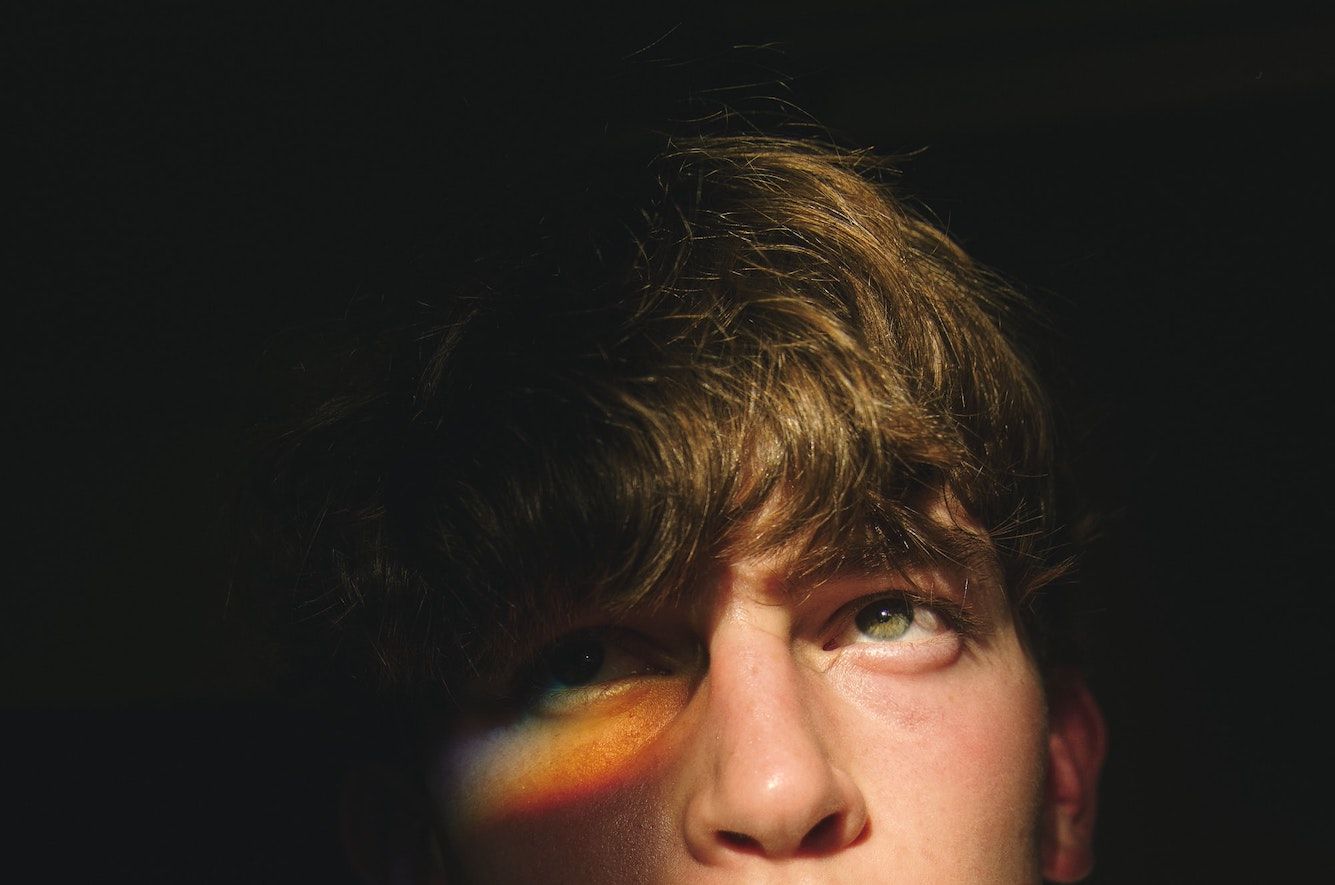
Do you take solace from the fact that, for instance, the current government in the UK has taken sensible steps. And you’ve seen a lot of sporting organizations put down sensible decrees that say, no, sorry, just because you have female pronouns doesn’t mean you can play rugby with people half your size. The battle, I don’t know, does it feel half-won?
J.B.: Yes. And what’s at stake [in this battle] is women’s safety when it comes to male violence. When we set up women-only refuges, rape crisis centres, demanded single-sex wards in hospitals, when we fought to introduce the [UK] Sex Discrimination Act, which allows someone to set up a women-only employer or service or whatever, we didn’t do it because we’re shrinking violets who either hate men or would faint at the sight of a penis. And it’s not because we think all men are potential rapists. It’s because we know that enough men are a danger to women that we need [policies] that keep all men out.
Now, apart from a few hard-line misogynists, men actually got that. Society accepted this because a significant minority of men do sexually harass, rape, beat, and violate women. This is all we’re saying now about women-only spaces when it comes to trans women.
We’re not “anti-trans.” We just want to keep men out. But they won’t have that, because unless we actually “affirm” them as women, then we’re “transphobic.”
Yes, the battle’s half won because we took a lot of legal cases. I’ve taken two legal cases [as plaintiff] and won both. But of course, that’s 18 months of your life that you’re never going to get back.
I sued a publication, Pink News, a misogynistic rag. And I also sued Nottingham City Council, which banned me from one of their public libraries, where I was going to speak about male violence to working-class women. Trans activists [wore] down [the Council] when they saw my name on the program.
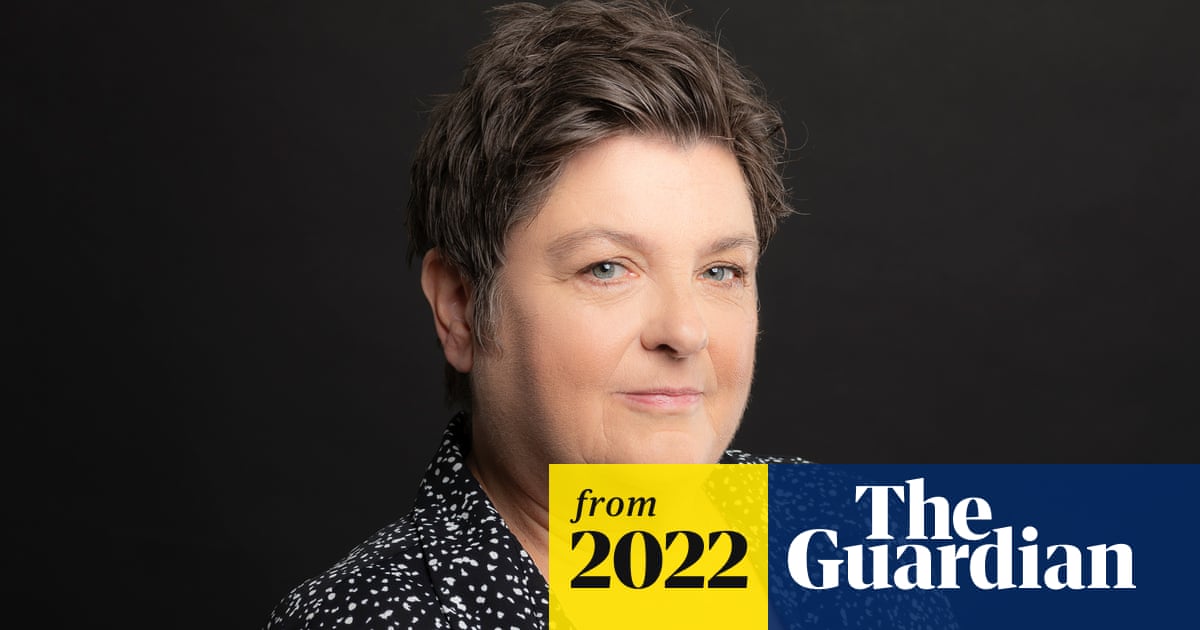
J.K.: We’ve had gay marriage here in Canada for the better part of two decades. And people who are well-intentioned, people looking for the next frontier in social-justice activism, they were like, okay, well, the trans thing is new, let’s [move on to] that. There was a well-intentioned spirit behind it originally, no?
J. B.: Maybe. But [then] the trans lobby convinced them that [society] needed to forego any medical gate-keeping. What they do is they fight for total self-identification for anyone who claims to be a woman because they have a feeling that they are.
J.K.: Like, during the course of this interview, I could just say I’m a woman…
J.B.: …and then you could trip down the road and go into a women’s refuge and demand to [stay] there.
When I was in Vancouver a few years ago, doing research for my book on prostitution, I was taken around the Downtown Eastside, which, as you know, is a hellish neighborhood full of poverty and social deprivation of every type, where women have been pushed out of windows. This young Indigenous woman, who herself was a sex-trade survivor, took me around the neighborhood, and was showing me the support services for young women trying to get out of the sex trade. And she pointed to a nice building, and said, “My aunt worked here and it was a great service.” And I asked her what happened. Did it close down? She said, no, it didn’t close down, but because of [Canadian] laws on [gender] self-identification, men who are homeless and have social problems, and who don’t like the [men’s] homeless hostel that they have, they would come to the women’s shelter. So just actual blokes would come in and sit around.
J.K.: In Scotland, there’s a rape crisis centre where the new administrator happened to be a biological male. This person went on record, I think, as saying that when women who’ve been raped come into the place, it’s a great opportunity to disabuse them of some of the “myths” they have about penises. Am I getting that right?

J.B.: Yes, you are. He identifies as female and runs a service in Edinburgh for women who’ve been raped and sexually assaulted.
He’s the chief executive of that service. So, in other words, the handmaidens, the women [who work] in that service, appointed a man. And this joker was on The Guilty Feminist podcast. And he was asked about the pushback that this rape crisis service endured for employing a man at the top of the tree. And he said that if women are traumatised about seeing a man, or someone they perceive to be a man, in a rape crisis centre, they need to “reframe” their trauma. Meaning, “Get over it, bitch.” It’s what women have been told forever—that if you are distressed or upset or traumatized after you’ve been raped, some bloke tells you to get over yourself.
But you know, something brilliant happened. Jo [J.K.] Rowling …
J.K.: …I love the way you call her “Jo” Rowling, like she’s your racquetball partner or something.
J.B.: We’ve become friends. She’s friends with many of us who’ve been in this fight because she really cares about fighting male violence. And she was really distressed at the idea that there are these women going into a rape-crisis centre, seeing a man, and knowing that there’s no such thing anymore in Scotland as a single-sex space for women who’ve been raped and sexually assaulted. And [Rowling] thought, “Oh, right. I can do something about this.” So she set up and funded Beira’s Place, which is in Edinburgh. And it’s single sex, and of course it’s heaving with women making inquiries to avail themselves of the services, which is both a terrible story and a really good-news story, because of course we know women are raped, we know girls have been sexually abused, and they need somewhere where they can feel safe.
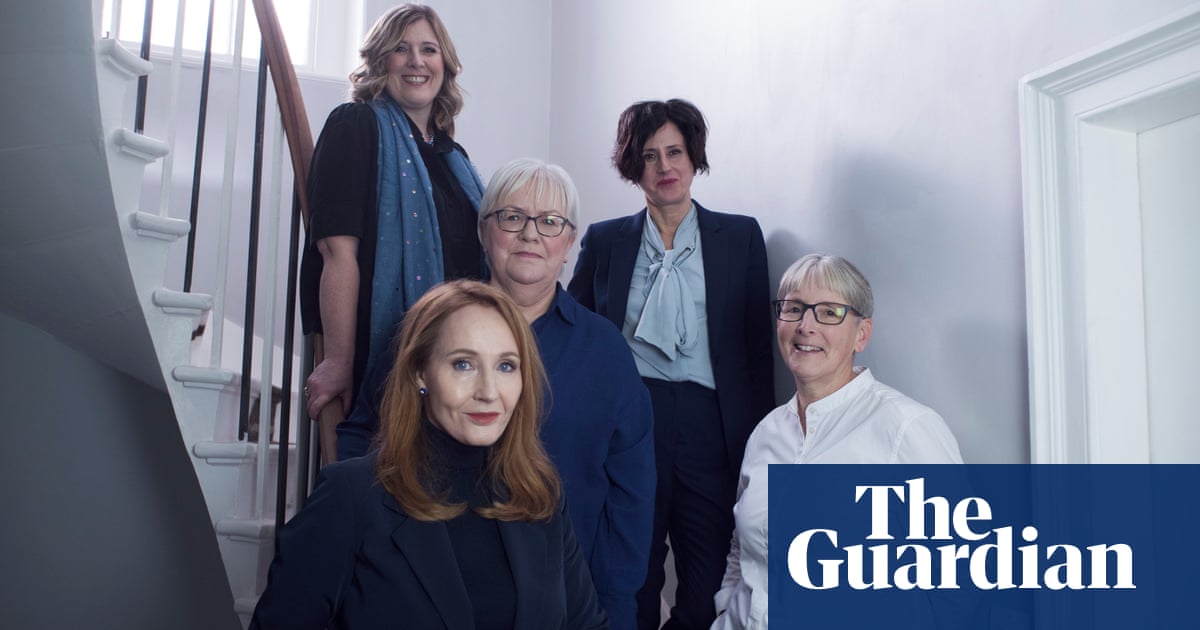
But they didn’t set it up as a charity because, as you might know, there’s a group called Mermaids, an organization that approves of the transgendering of children, which took the LGB Alliance to court over their charitable status. The LGB Alliance won, but it was time consuming, and it took [the LGB Alliance] away from the job of advocating for same-sex attracted people—lesbians, gay men, bisexuals…
J.K.: As part of the movement to make gender supreme to biological sex in all milieus, the conceit was advanced [by trans-rights advocates] that none of us are actually attracted to female or male bodies per se. We have a writer at Quillette, his name is Allan Stratton. He’s a well-known Canadian author who’s written about how this conceit that I just described is essentially homophobic, because it denies an existential component of the gay identity. For a gay man, it’s not the only thing that makes Allan who he is, but it’s one of the things—he’s attracted to male bodies instead of female bodies. And then someone comes along and says, “No, no, you’re very confused, Allan. What you’re really attracted to is the male pronoun. The body is just kind of this thing that the pronoun drags along.”
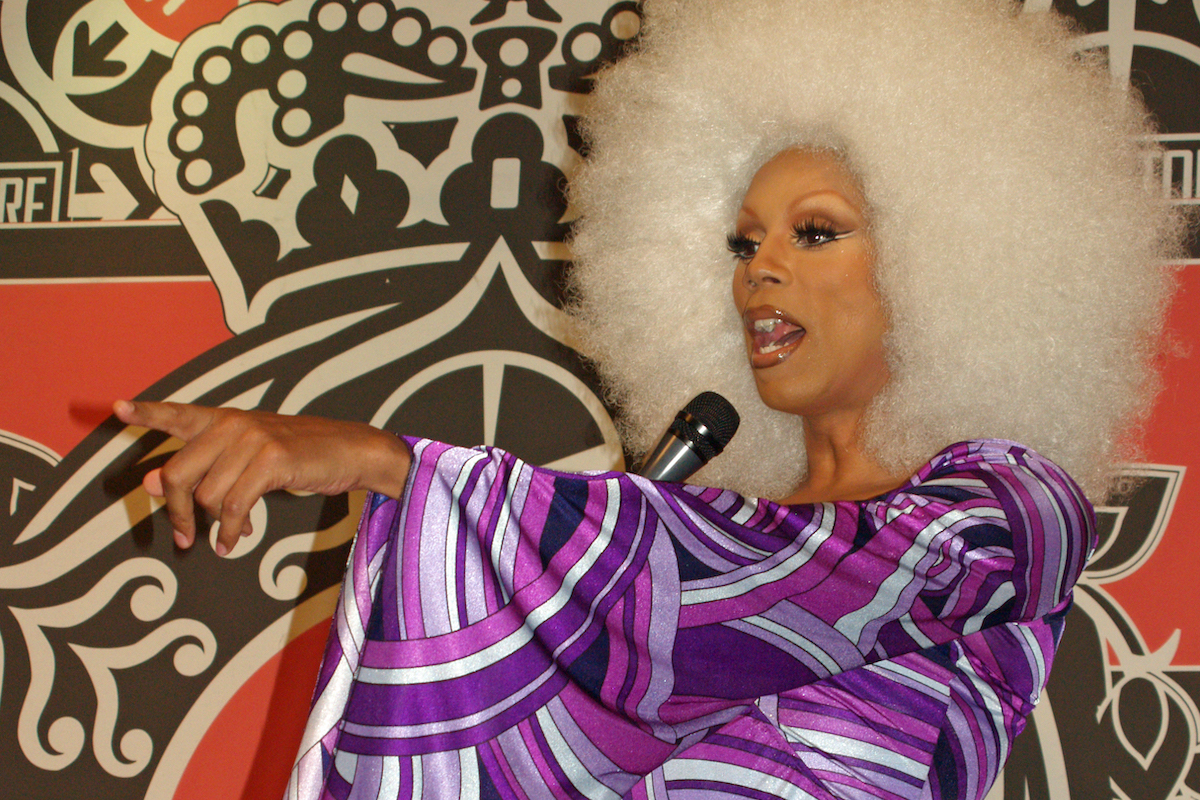
JB: It’s deeply homophobic. It’s deeply anti-lesbian. When I was in court during some of the Mermaids case against LGB Alliance, some of Mermaids’ witnesses were saying that “some women have penises,” and that if you reject trans women from your dating pool, you’re transphobic. So what they were telling us is that it’s same-gender attraction, and it’s not same-sex attraction.
J.K.: This is a tangent to a tangent. But where does the name “Mermaids” come from? Because a mermaid, to me, is a kind of crotchless creature, right? Sets up a very unsettling image…

J.B.: You tell me. All I will say is that the chief executive for some years before recently moving on—and this is well documented, including by her—took her son to Thailand as soon as he was 16 to have him castrated. And, you know, you are talking about rendering young people, often kids, infertile, and actually taking away the possibility that they’ll ever have sexual pleasure in the future. So it’s outrageous.
J.K.: When you talk about doing these irreversible medical procedures on kids, I just thought about this horrible case that was promoted by [a Canadian hospital foundation]. I think it was a nine-year-old who was being profiled as trans, and it was like the full I Am Jazz treatment. Her family threw her a party, then the unicorns pranced around, and there were seven days of rainbows. [Editor’s note: The child in question, “Mary,” is actually listed as being 10 years old. Quillette regrets the error.]
But then, when they interviewed the kid, and I can’t believe they left this in the article, because it’s such a damning thing, the kid says, basically, “Oh yes, you know, they told me about all these medical things that could happen to me—like I wouldn’t be able to have kids…”
Absolutely insane that you folks published this, and thought anyone reading it would see it as anything except a dangerous cult. pic.twitter.com/qNx7g7V3a7
— Jonathan Kay (@jonkay) November 16, 2023
And as a reader, I’m thinking, okay, well at least the clinicians told the kid about this stuff, to the extent a kid that age can even understand that kind of thing. But then the kid said, and they left this in the article, that it didn’t matter because the kid was gonna be a “famous actress,” and so wouldn’t have time to have kids. So that’s the level of comprehension and the modelling of the future that’s regarded as “informed consent.”
J.B.: It’s utterly outrageous, and for many of us, we see clearly that what’s happening at gender clinics is conversion therapy. Gender dysphoric young women present at gender clinics, saying, “I’m unhappy with my body”—tell me what teenage girl isn’t, right? And the majority are same-sex attracted.
J.K.: One thing I’d like to talk about, because I think maybe people who’ve learned your name recently might think, you know, that your whole career you’ve focused on this stuff. But you’ve done a ton of other things, too. You mentioned conversion therapy. Am I right that you once went to the United States, kind of undercover, to experience real homophobic conversion therapy where they’re trying to turn gay people straight?
J.B.: Yeah, a few years ago, I was writing a book on lesbian and gay culture and politics. I decided that I would go through the whole treatment. So I tracked one [service] down that specializes in lesbians, because there is one, and it was in a small Christian town near Columbine, Colorado, and I adopted a persona of “Joanne,” who’d been thrown out of her family when she was a teenager and her church, and she was Christian and all of her relationships had gone wrong.

And basically, you know, “Joanne” was thinking that she’s in her 50s, and she really needs to think about settling down and having a real relationship and getting back with her parents before they die, before it’s too late.
And I stayed in a Christian hotel, and every day I would go and see the therapist, and she would tell me how broken I was, how damaged I was, how my childhood had ruined me, how God still loves me, but I need to do right by God. I heard tell of
my ancestors who wanted me to get “fixed.” I was told my mother abused me. My father neglected me. I mean, everything that you can think of that can go wrong in a childhood—she just scatter-gunned all these possibilities out at me.
It was deeply distressing because no one’s childhood is perfect. [And while none of this was true], everybody has doubts about themselves and about who we are. Especially when we’ve experienced anti-lesbian bigotry and prejudice, which I have; and I’ve been beaten up and lost jobs for it and sexually assaulted. Yeah, it really did have an effect on me.
I had to kind of do some serious prepping. I had a friend around, because I wasn’t raised a Christian. I had to have a friend around who was raised as a Christian, who told me what the Lord’s Prayer was…
J.K.: I’m Jewish, and even I know what the Lord’s Prayer is.
J.B.: Well, yeah, but I had a bad schooling…
J.K.: You’re not only a bad Christian, you’re also a bad lapsed Christian!
J.B: I’m really terrible, but you know, when I had to [come clean to] the therapist [in Columbine] once I got home [to the UK], that was the worst bit of it, actually, in a way. She possibly was doing this because she truly believed that we [people like me] would be “saved.”
J.K.: Believing Christians are some of the best people I know…
J.B.: …I agree…
J.K.: When I go work at a food bank, in terms of the [great charitable] stuff I see them do, like serving the poor and being foster parents…
J.B.: …anti-[sex]-trafficking work…
J.K.: And so for me, it would be just very tough to undermine kindly old people who think they’re saving you.
J.B.: Thankfully, she [the therapist] wasn’t elderly. She was well-paid, had good standing in the community, had done some terrible things to women who’d escaped unhappy marriages and who just wanted to be together [in their new lesbian relationships], and they were kind of forced apart and put through this boot camp.
I still felt bad, however, because actually lying to people and sneaking around…we’re trained [as people] not to do that.
J.K.: You came to Canada in part because we’re like kind of a poster child internationally, apparently, for what happens when a government just gets captured by the most militant men’s rights strain of the trans rights movement.
Is that Justin Trudeau’s international brand now?
J.B.: That is absolutely right. We call this country “Tranada,” and I’m hearing from lesbians in particular that they’re [often] not allowed to meet separately from men, that if they put on an event for women only, they’d be picketed, they’d be bullied, they’d be possibly attacked.
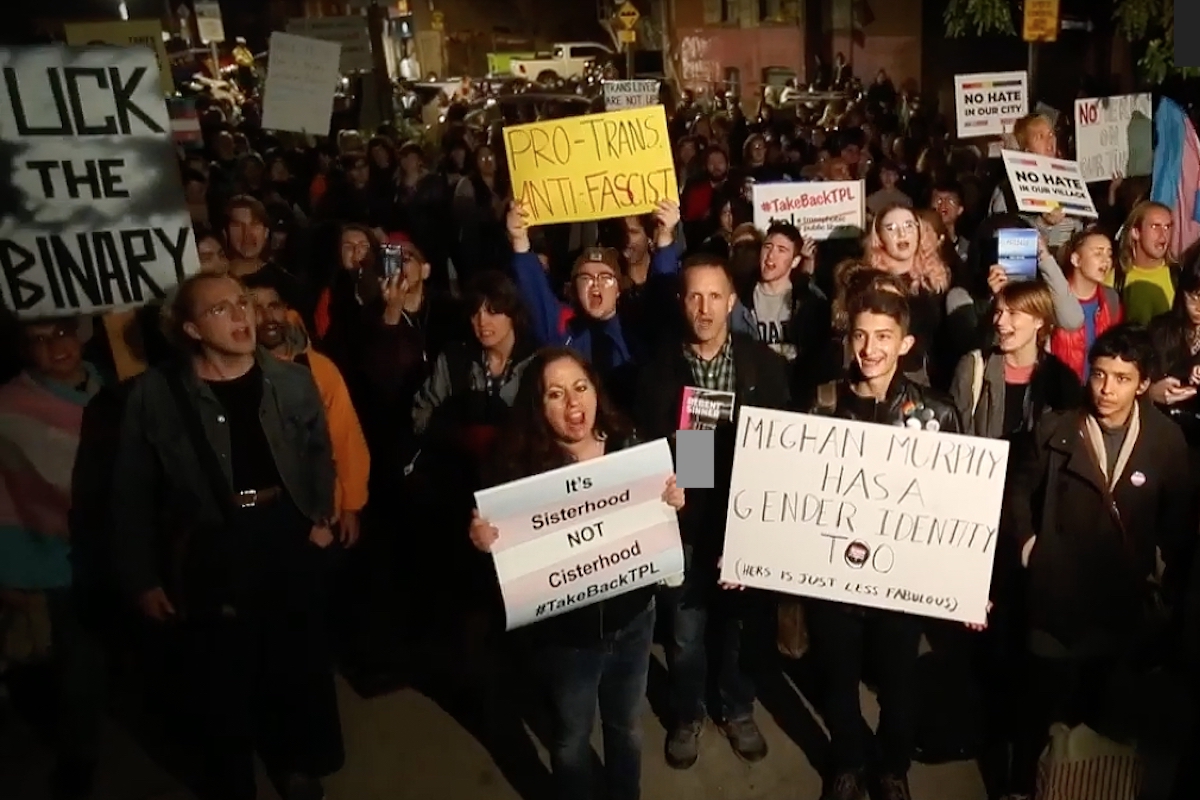
We’ve seen what happened in Vancouver with their Rape Relief organization, where they’ve had a rat nailed to their door, and public funding cut, for refusing to allow men into this women-only space.
J.K.: And ironically, by the way, when Trudeau came to power, his big brand was as a feminist.
J.B.: Yeah, an intersectional one, isn’t he? You know, he was given a good kicking for wearing blackface, yet nobody looks at the fact that these men are wearing womanface, and insisting that we roll over and give all our rights away.
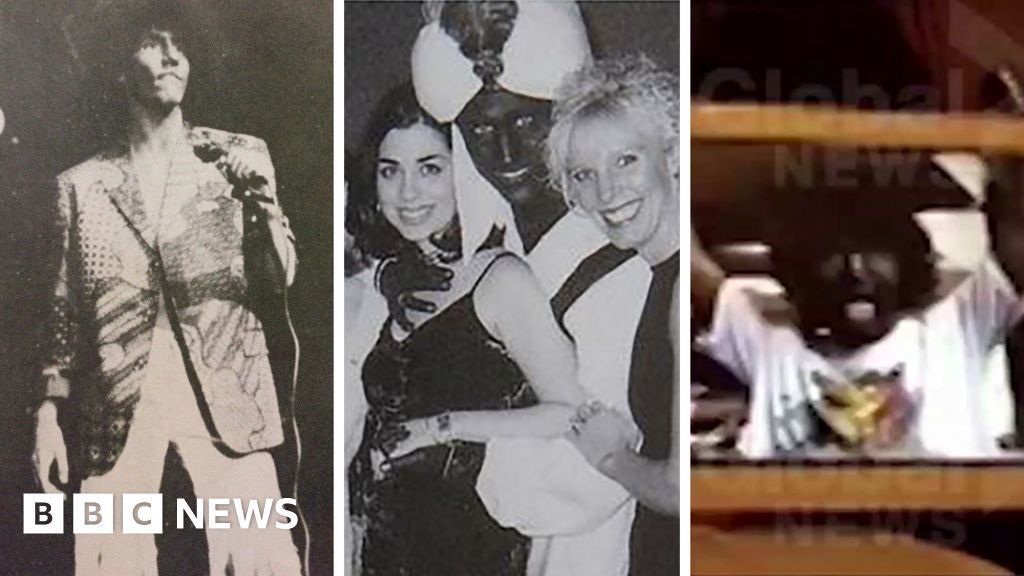
Tranada is one of the worst places on the planet for this [men’s rights] ideology. But I have to say though, that much as it’s depressing what’s happening here, meeting the lesbians that are finding ways to fight back and finding ways to organize together, feels like, oh my god, this again, fifty years later, but good for them.
29 year old centrist lesbian. I couldn’t care less what you identify as, who you’re attracted to or what you look like. I don’t hate anyone. I am running for trustee because I want to protect kids from a divisive ideology. We are all equal. pic.twitter.com/oALkFxVW3P
— Chanel Pfahl 🇨🇦 (@ChanLPfa) October 22, 2022
J.K.: There are people out there who, when I mention your name, they start telling me about some grudge they have against you from years ago. And, as I’ve told you, I started my journalistic career at a conservative newspaper. And we were always banging on about “militant feminists”—like you, I guess. But times have changed, and now I’m actually egging feminists on to be more militant because I kind of like what you’re doing on the genderwang file. But do you still get people who, even though you have common interests, they’re like, nope, I’m not going to work with Julie because of some thing she said three decades ago?
J.B.: They’re welcome to come and chat with me anytime. They’ll see I’m not a man-hating bigot. If I make jokes about, you know, how if men can’t behave themselves, let’s put them all in an enclosed holiday camp and give them quad bikes to ride, and they interpret that joke as serious and they turn that into, “Julie wants to put me into a concentration camp!…”
J.K.: What?! Concentration camps don’t even have bikes…
J.B.: … When I make a joke that’s misinterpreted, [I find that] it’s wilful misinterpretation.
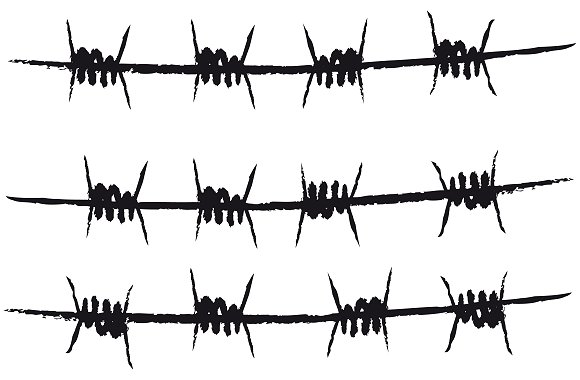
J.K.: Well, you’re funny. I mean, this is one thing I learned about you, is that you balance your militancy with your humor. That’s a very fine line to walk. Have feminists gotten funnier as a result of the struggle [against gender ideology] that we’re talking about, simply because the enemy is so [ideologically] ludicrous?
J.B.: We’ve always been funny. But, my god, do we have some [great] material coming in from this gender woo-woo. Problem is, it’s now gone beyond parody.









